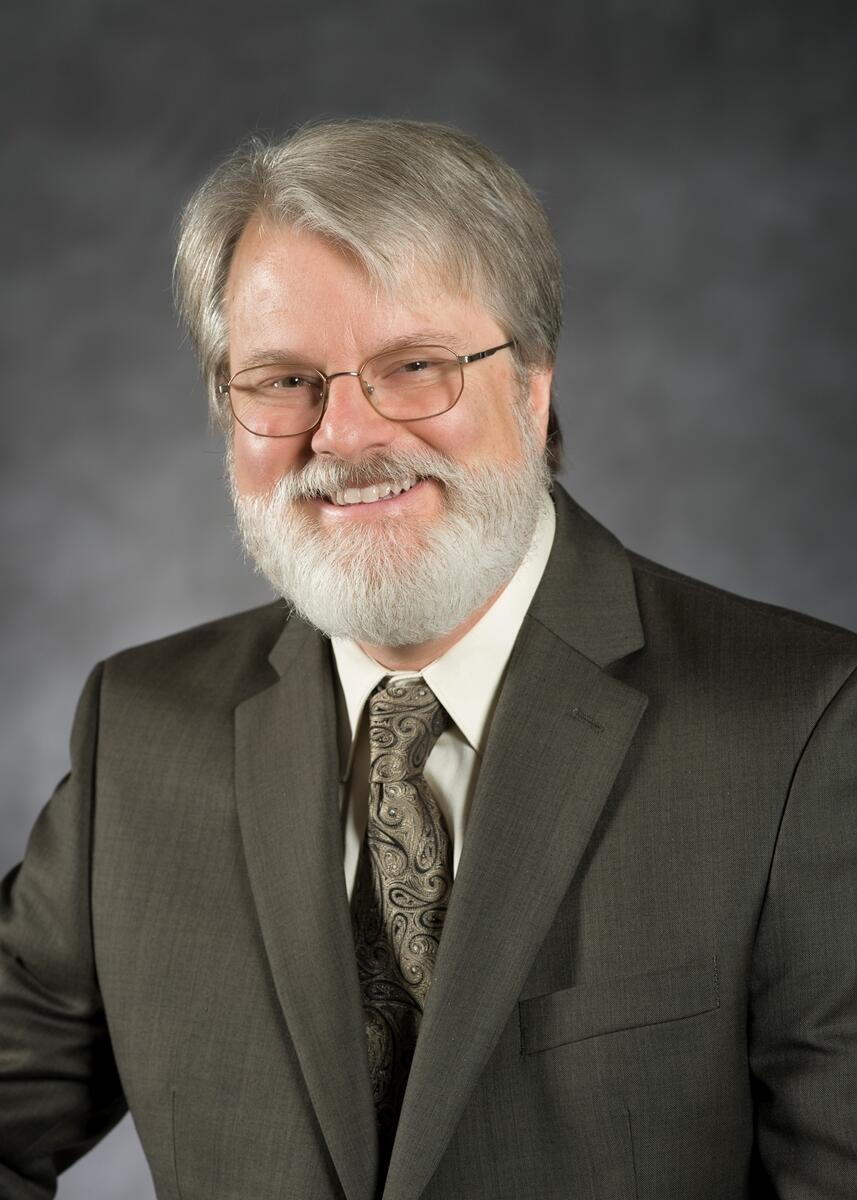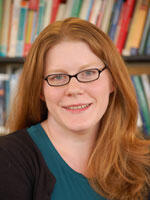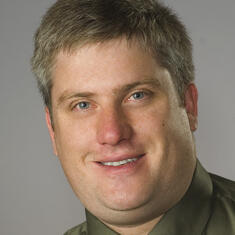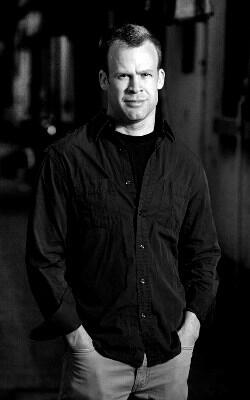
March 26, 2014
Online on the rise: Web-based courses offer new opportunities
Share this story
Two years ago, Andy Kennedy-Derkay had serious doubts about his screenwriting class. The course, which was part of the Cinema Program in the Virginia Commonwealth University School of the Arts, would be held in a workshop format with students critiquing each other’s screenplays in an open discussion. There also would be assigned academic readings on storytelling and screenwriting and requirements for written feedback on peers’ work. All of that sounded fine.
The part that had Kennedy-Derkay feeling wary was that his teacher, Kirk Kjeldsen, an assistant professor of cinema, would be leading most classes from his home in Shanghai, thousands of miles and many time zones away. Instead of a live person at the head of the class, there would just be a computer monitor with his teacher’s face, brought to the classroom via Skype.
How, Kennedy-Derkay wondered, would any intimacy be established in the class? How would discussions be anything other than disjointed and frustrating? How would Kjeldsen build a rapport with each student and provide anything resembling individual attention? And just how tempting would the urge be to slack off with a teacher so seemingly out of touch?
Then classes started, and Kennedy-Derkay’s worries were forgotten. Classroom discussions were lively, participants were deeply engaged, and Kjeldsen was a direct, active presence, steering discussions, targeting questions to individuals and ultimately proving to be as accessible and involved as if he was in the room with them.
“He’s as connected a professor as I’ve ever had,” Kennedy-Derkay said.
Looking back now, Kennedy-Derkay, a senior, said the course that he thought might prove to be a breezy trifle instead turned into “the most difficult class I had here. It was incredibly intensive but also incredibly enjoyable.”
Kjeldsen’s screenwriting course represents a form of an uncertain but compelling frontier in higher education: online education. It is a field that encompasses a broad range of efforts, involving not just the use of the Internet to conduct a class but also the many ways that digital tools can be used to aid learning, research and the dissemination of information.
At VCU, students and faculty are already active in the online space. In fact, approximately 6,000 to 7,000 students are enrolled in online courses at VCU each semester, and teachers throughout the university incorporate a variety of online programs into their courses. Kjeldsen’s course, for instance, is a kind of hybrid, using online tools, a physical space and a set class meeting time. Other online courses are strictly online.

Still, the possibilities in the field have barely been tapped here or anywhere else, according to Gardner Campbell, Ph.D., vice provost for learning innovation and student success. He finds that unknown quality exciting.
“This is a tremendous opportunity in education,” he said.
Although VCU has been active in online learning, it has not been a trailblazer in the field. The university’s next steps in this area will be directed not only toward taking advantage of existing opportunities others have already identified but also searching “on the edges” of what has been explored, according to Campbell and Jon Becker, J.D., Ph.D., who is interim director of the Office of Online Academic Programs at VCU.
“We’re now positioned to make our own mark in this space,” Becker said.
‘Narrate, curate and share’

Jason Coats, Ryan Cales and Jennifer Roudabush have been pursuing ways to improve the experiences of their students with online tools such as WordPress, which is software that allows for the creation of websites or blogs; Google Docs, which is a cloud-based home for documents that can be shared with others; and Diigo, which is a social bookmarking site that allows for large-scale collaboration and information sharing. The University College faculty members each teach UNIV 200, a course that focuses on research and research writing.
Their efforts with Diigo in UNIV 200 highlight the possibilities of online tools to create collaborative assignments that would have been unimaginable not long ago.

In the course, students conduct research projects in one of a collection of assigned topic areas. Each student locates 10 online research sources, such as journal articles, that fit the topic area that they choose, and they post the source to the course’s Diigo site. This means that students are both doing their own research and aiding each other’s, creating a massive class resource.
In addition, each student annotates the posted articles, adding thoughts, reactions and connections to related research. The result is an online conversation among the students about the research that they are conducting, helping to strengthen their understanding of the texts and to consider it in unexpected ways through the viewpoints of their classmates.

Between the three teachers’ different UNIV 200 sections, approximately 150 students are involved in the Diigo group this semester.
“We think it helps students understand that they’re not just doing individual projects – it’s not just [150] independent studies happening apart from each other,” Cales said. “It can be easy for students to check out, so we’re always looking for ways to encourage them to engage. The collaborative nature of this helps them stay engaged.”
The course represents the Web’s potential to treat research in new ways. Campbell hopes to see more of the VCU community using online tools to communicate and present their work, “showing the ongoing story of learning, as told by the learners.”
“It’s important for us to help our students understand how to be digital citizens,” Campbell said. “We want them to see the opportunities that the Internet presents for narrating, curating and sharing information.”
Cales said he and his teaching colleagues worked with the Center for Teaching Excellence to develop the new media components of their course. The center is a valuable resource for teachers looking to integrate digital tools into their plans.
All members of the VCU community already have access to WordPress, which allows them to create their own website. Now, in addition, Campbell said that the Office of Online Academic Programs has launched another instance of WordPress. The goal is to make it more decentralized, allowing for an arrangement that is “nimble, adventurous and loosely joined,” he said. This will allow scholars more freedom to employ the tools in innovative, unscripted ways.
Online courses

For VCU and other schools, deciding how to implement and encourage digital learning on campus remains a challenge and part of an ongoing effort. Establishing online courses is one straightforward approach, but the implementation is not a simple task. As with traditional classes, an online class will only be effective if it is prepared and managed well. Becker said VCU students have expressed their enthusiasm for having more online courses, but they’ve also made it clear they do not want haphazard entries into the field.
“They’re very savvy consumers about this,” Becker said.
Becker said that VCU already has “a couple of hundred” online courses each semester, and he notes that students can complete the requirements for some degrees largely or completely online.
For instance, the School of Social Work offers a distance education master’s program that primarily is taken online. The school’s national standing – it ranks No. 11 in the country among graduate social work programs by U.S. News & World Report – ensures that it receives a large pool of applicants for the online-only track.
Another online program, a master’s degree offered through the Center for Sport Leadership, allows coaches and athletic administrators to pursue new studies while remaining with their teams or programs wherever they are located.
The relative newness of online education means that complications are inevitable. In Kjeldsen’s course, for instance, the vagaries of the international Internet can lead to dropped connections in the middle of class, even in the middle of a sentence, though he said only one class has been canceled because of it.
Campbell said untidiness and uncertainty are not to be feared, nor do they necessarily signal problems.
“It’s all a work-in-progress,” Campbell said. “All of it has the potential to be messy and risky, but it’s a lot like life that way. And the potential benefits far outweigh the risks.”
Becker said public perception of online learning is improving, but he still sees many concerns about the field and its capabilities to fill its role as well as a traditional learning environment does. Becker said embracing online courses does not mean shortchanging traditional classes or creating a wholesale shift to online. One critical potential benefit is helping ease the burden on “bottleneck courses,” which are necessary to graduate and difficult to access because of their popularity and importance.
Becker said that the marriage of the Internet and learning are a natural fit. Becker, who is also an associate professor in the School of Education, said the Internet was created and operates as a social medium. Teaching, he said, is an intrinsically social endeavor. Bringing them together is common sense, he said.
“I think there’s a lot of misperceptions out there about online education,” Becker said. “The idea that you can’t build relationships with students online is a myth in my experience.”
Kjeldsen agrees. He taught at VCU in person until his wife received a transfer to Shanghai for her job. When he launched the online version of his class, he worried that he wouldn’t be able to engage with his students and oversee a productive classroom discussion. In fact, Kjeldsen believes some of the students are more comfortable participating in the online format. He still travels to Richmond to teach in person for stretches each semester and for eight weeks during a summer intensive session, and he enjoys the mixture of teaching climates.
“I have no more difficulty managing the classroom or leading the discussion online than I do when I’m in the classroom,” Kjeldsen said. “Some professors might have more difficulty teaching online; some might actually find it easier. I do both every semester, and for me, the challenge for teaching in two dimensions or three dimensions is the same: You’re trying to engage and involve as many students as possible from moment to moment.”
MOOCs
Campbell is excited about VCU’s first MOOCs (massive open online courses), which will debut this summer. MOOCs allow for large numbers of people, including people who are not enrolled in school, to participate in a class as students.
In one of VCU’s first MOOCs, Campbell and Becker will work with three University College faculty members to teach five sections of UNIV 200 courses. Each section will have a limit of 20 VCU students, who will take the course for credit, and there will be no limit on those who decide to take the course without receiving credit. In addition, Marcus Messner, Ph.D., assistant professor in the Robertson School of Media and Culture, part of the College of Humanities and Sciences, will teach a course on global health and social media.
The courses will set the stage for the university to expand its online presence.
“It’s a way of creating a model for us of what’s possible online,” Becker said.
Campbell said the massively open courses, structured as “connectivist” MOOCs focusing on students' learning networks, will strive to showcase some of the best of the Internet’s potential for education, particularly to ensure that a course is about the process of learning and not just a trip “from syllabus to final.”
“It makes learning visible,” Campbell said.
Becker said the open, online format offers many benefits for VCU students who will be in a course with the general public. He said the openness will bring spontaneity to the course, and students will experience writing for a wider audience. They will learn the advantages of the Internet as a far-reaching network.
“It’s going to help them understand how to learn beyond just the professor and the other students in the class with them,” Becker said.
Making the world smaller

Kjeldsen said online learning has provided a freedom and global flavor to his course. He’s taught sessions not only from Shanghai, but also from Japan, Thailand, the Philippines, Indonesia, Malaysia, Hong Kong, Germany and Los Angeles. In addition, Kjeldsen has used the format to enlist working colleagues from New York and Los Angeles to participate in the class and speak with students.
Kjeldsen was teaching a class session once during Chinese New Year when the discussion was interrupted for a couple of minutes by a battery of rockets exploding outside his window. The students loved it.
He said online education simply follows the path the culture is already taking.
“A former student of mine is living and teaching over here in China, and there's another in Japan, and another in Korea,” Kjeldsen said. “We currently have students from France, Cambodia, Indonesia and Eritrea. The idea of a ‘global classroom’ just seems to be getting closer and closer to reality in so many ways, and the world is only going to become smaller and more interconnected.”
Subscribe for free to the weekly VCU News email newsletter at http://newsletter.news.vcu.
Subscribe to VCU News
Subscribe to VCU News at newsletter.vcu.edu and receive a selection of stories, videos, photos, news clips and event listings in your inbox.










